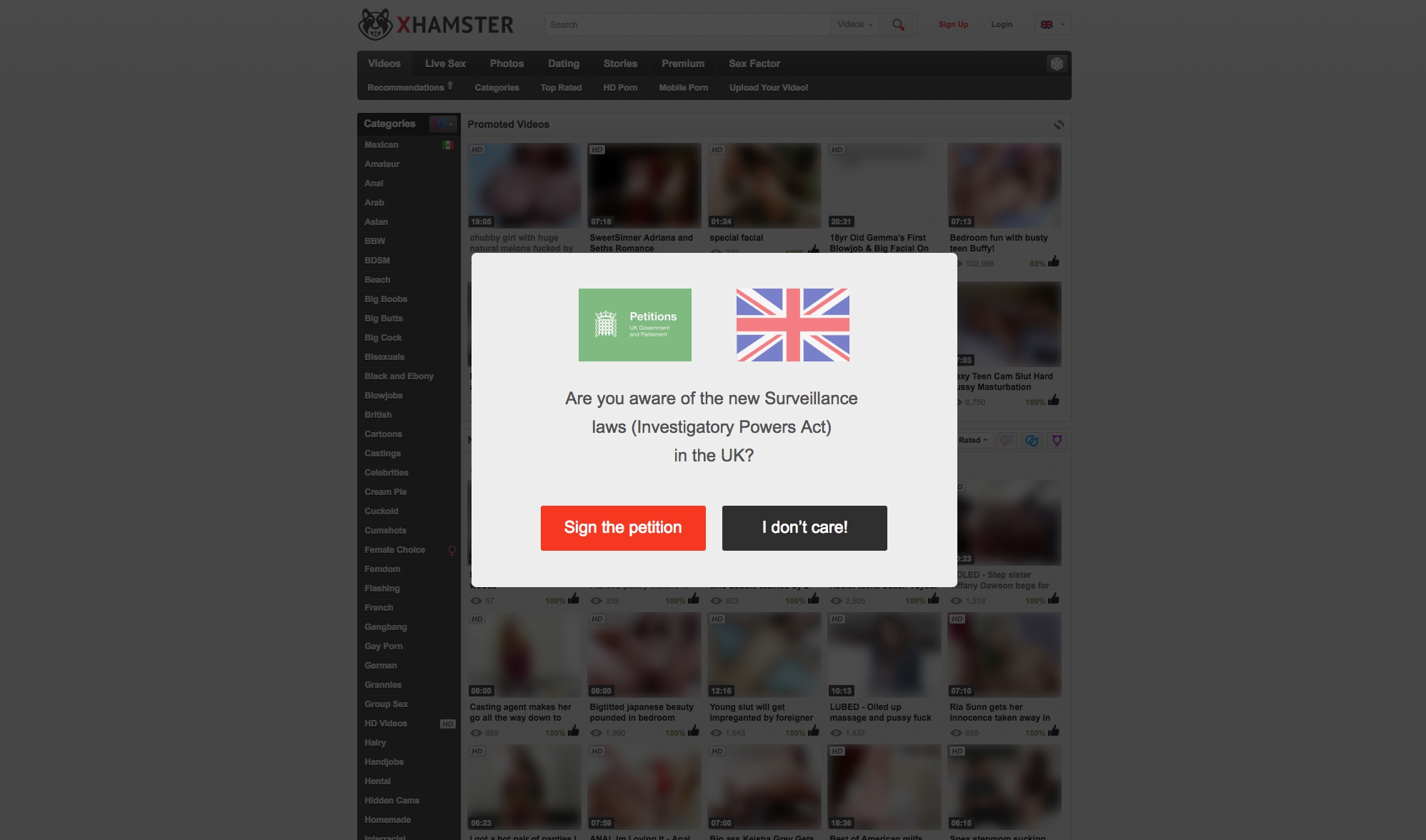صحافة / Do Porn Bans Work?
Despite strict porn filters (and even full-on bans) in many countries, users are still getting to xHamster.

Countries that "banned" xHamster (ranked by total visits to the site in 2016):
- Thailand 125,214,402
- Turkey 95,447,737
- UAE: 83,401,435
- Russia 73,545,085
- China 60,841,625
- Malaysia 42,257,057
- Kazakhstan 11,045,297
- Iran 8,486,277
That’s not to say that bans don’t work at all. Traffic from Russia initially dropped 69.6% in the three months following their ban in April 2015.
"Despite the best attempts of censors, users are finding their way to the xHamster using web-based proxies, VPNs, and networks like Tor," says Alex Hawkins, a spokesperson for xHamster. "Unlike political bans, porn bans may have the opposite of the intended effect by pushing otherwise apolitical citizens into networks that bypass government blockades."
In fact, after the UK instituted a 2014 ‘opt-in’ ban which required users to request access to adult material from their ISPs, xHamster actually saw traffic to the site increase. The UK is the third-largest source of traffic to xHamster.
But such bans have a disproportionate effect on older users, women, and those using shared fami1y or institutional networks.
xHamster is launching a campaign for all UK visitors, asking them to sign a petition repealing the Investigatory Powers Bill, a wide ranging bill that allows the government to monitor sites visited. The companion Digital Economy Bill would ban adult sites that feature specific 'objectionable' content like public sex or urination, and require mandatory age-verification checks to prevent people from accessing sites anonymously. If the Digital Economy Bill passes, most adult websites could be effectively banned.
"A panic over adult content is being used by the UK government to pass a sweeping bill that will allow the government to limit speech and monitor citizens online," says Hawkins.

